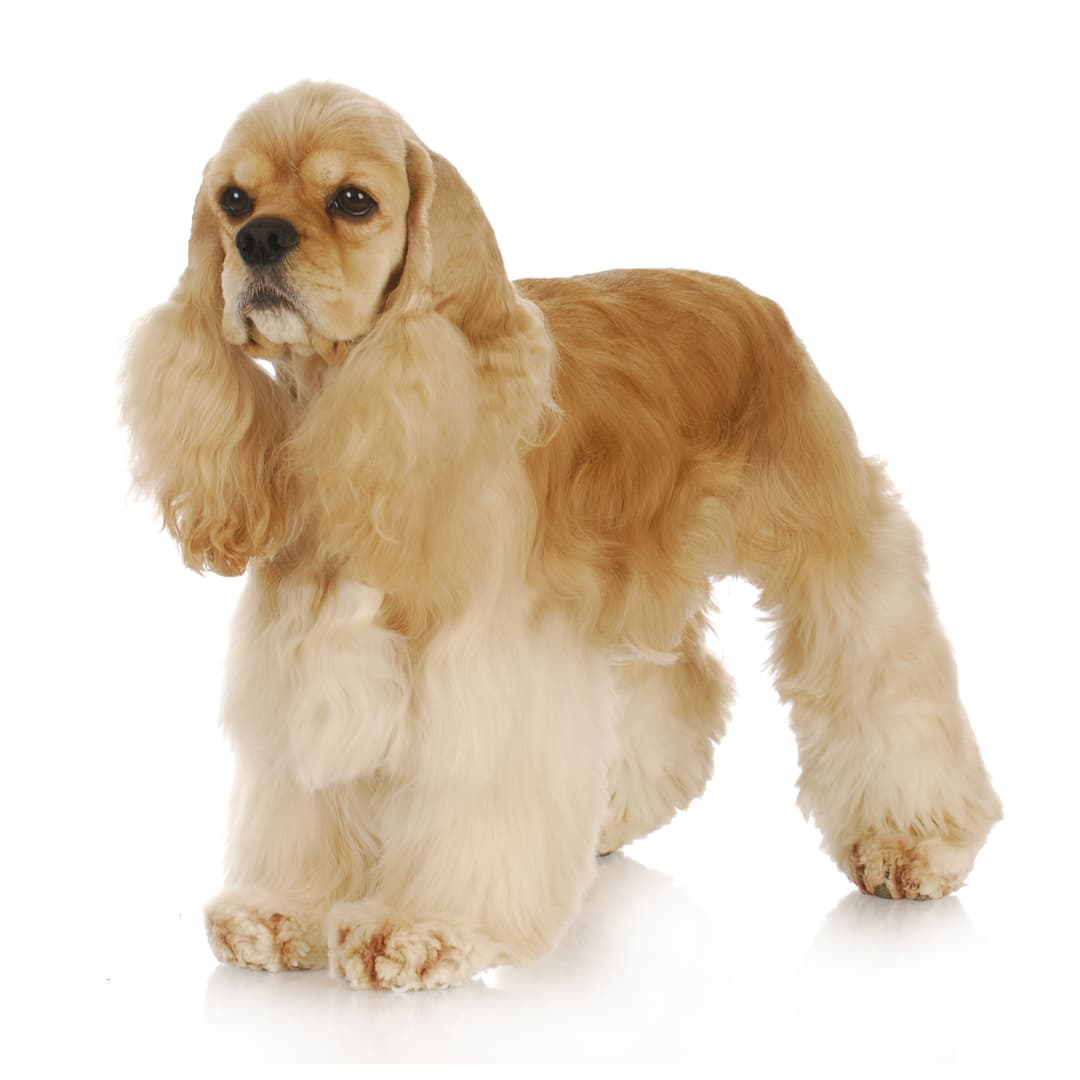Discover your dog's connection to this breed and 200+ others


Discover your dog's connection to this breed and 200+ others



Spaniels are thought to have originated in Spain. The English Cocker Spaniel was brought to America in the 17th century, but over time, American breeders started developing a dog that was smaller, had a more domed head, and a shorter muzzle. This selective breeding resulted in the American Cocker Spaniel, which was recognized as its own breed by the American Kennel Club (AKC) in 1878.
American Cocker Spaniels can suffer from degenerative myelopathy, progressive rod-cone degeneration, and hip dysplasia. Genetic testing for conditions such as familial nephropathy, glycogen storage disease type VII, phosphofructokinase (PFK) deficiency, acral mutilation syndrome, chondrodystrophy and intervertebral disc disease (CDDY and IVDD risk) with or without chondrodysplasia (CDPA), and exercise-induced collapse can assist veterinarians with diagnosis and proactive care, as well as help breeders identify affected and carrier dogs.
American Cocker Spaniels are known for their gentle, amiable, and cheerful disposition. They are intelligent, which makes training relatively straightforward, but they are also sensitive and do not respond well to harsh training methods.
The breed is sociable and gets along well with children and other pets. They are also known to be quite active, requiring regular exercise to maintain their health and happiness.
A canine genetic lineage is a group of individuals or entire breeds that descended from common ancestors predating modern breed formation. Often these lineages are associated with a ‘type’ of dog with a unique historical working role and associated behaviors (e.g., herding, scent hunting, etc.).
The Pointer-Spaniel lineage encompasses both pointer and spaniel breeds. They were both bred for their specialized hunting abilities in Europe. Pointers locate game and freeze in a stance, called “pointing”, to indicate to their hunter that birds are close by. Spaniels were bred to find game in underbrush and retrieve it. Both pointer and spaniel breeds were bred to enhance their strong senses, trainability, and endurance as these are advantageous in a hunting partner. Spaniels and pointers are known for their strong work ethic, ability to work closely with humans and agility. These dogs’ ability to work closely with their hunters makes them an asset during a hunt because they follow direction well and know how their hunters want them to proceed.
Example breeds with ancestry from this lineage include English Cocker Spaniel, Irish Red Setter, and German Shorthaired Pointer.
These dogs were among the most popular of American purebred dogs in the 1950s, when Cocker Spaniels such as Vice President Richard Nixon's Cocker named Checkers and the Cocker Spaniel named "Lady" in Disney's Lady and the Tramp movie were well-known and very popular in the public eye.
American Cocker Spaniels are known as the smallest member of the AKC's sporting-dog family.
https://www.akc.org/dog-breeds/cocker-spaniel/
https://vgl.ucdavis.edu/breed/cocker-spaniel-american
https://www.ofa.org/recommended-tests?breed=CS
Recommended by top vets with decades of experience
21 breeds
64 genetic health markers
50 genetic trait markers
